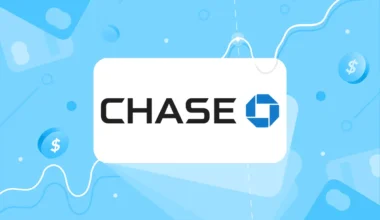Navigating the waiting period for disability benefits can be financially and emotionally challenging. The application process for Social Security Disability Insurance (SSDI) or Supplemental Security Income (SSI) often requires months, if not years, to reach an approval decision. During this time, exploring alternative income sources and financial assistance can help bridge the gap. Here’s a comprehensive guide to income options, government assistance programs, and budgeting strategies to help you manage finances while awaiting disability approval.
Temporary Income Sources to Consider
1. Part-Time or Flexible Employment
For those who can still work part-time or perform light tasks, flexible jobs may be a viable option without affecting your disability claim. Here are a few options:
- Freelance Work: Opportunities such as writing, data entry, or graphic design can be done from home and offer flexible schedules.
- Customer Service and Virtual Assistance: Many companies offer remote customer service jobs or virtual assistant roles that require only a phone and internet connection.
- Pet-Sitting and Dog Walking: If physically able, caring for pets or providing pet-sitting services can offer supplemental income with minimal impact on disability eligibility.
Be mindful that Social Security has specific earnings limits for disability claimants, so keep your monthly income below the allowable limit to avoid complications with your disability application.
2. Self-Employment and Gig Work
Self-employment offers the flexibility to work around physical limitations, with options such as:
- Online Tutoring: Share your expertise in subjects like English, math, or history, especially if you have experience in these areas.
- Handmade Goods or Crafts: If you have a hobby like jewelry-making or crafting, selling items on platforms like Etsy can provide small amounts of extra income.
Self-employment income is typically counted only when it’s received (not when earned), so managing when you receive payments can help avoid income threshold issues.
Government Assistance Programs for Interim Financial Support
1. Supplemental Nutrition Assistance Program (SNAP)
SNAP provides food benefits to qualifying low-income individuals, offering a way to reduce grocery expenses during the waiting period. Apply through your state’s SNAP office, and if approved, you’ll receive a monthly amount to assist with food purchases.
2. Temporary Assistance for Needy Families (TANF)
TANF offers emergency funds to cover essential living expenses, such as housing, food, and clothing. TANF applications are managed by local offices, and income eligibility depends on various factors, including your household size and resources.
3. Low-Income Home Energy Assistance Program (LIHEAP)
For assistance with utility bills, LIHEAP offers help with home energy costs, from heating and cooling to energy-related home repairs. LIHEAP varies by state, so contact your local agency to see if you qualify.
Private Insurance Disability Payments
If you have access to private short-term or long-term disability insurance, these policies may offer benefits that bridge the gap until your SSDI or SSI application is approved. Short-term disability typically covers a few months of income following an illness or accident, while long-term disability can provide continued support if needed.
Local and National Charities
Charities and community organizations often provide support for individuals in financial need, with services including food assistance, housing help, and transportation aid. Some of the most helpful options include:
- Food Banks: Local food banks often supply free groceries to qualifying families, helping reduce food costs.
- Catholic Charities and Meals on Wheels: Catholic Charities offers cash assistance and various resources, while Meals on Wheels provides food support to seniors who may be homebound.
Managing Health Care Costs
1. Medicaid
Medicaid offers low-income individuals access to essential health services, including doctor visits and medications, potentially easing the burden of medical expenses. You can apply through your state’s Medicaid office or at healthcare.gov.
2. Charity Care Programs
Many hospitals provide “charity care” programs that help cover healthcare costs for qualifying low-income patients. Check with your local hospital to see if they offer reduced-cost or free services to individuals awaiting disability decisions.
Smart Financial Management Tips While Waiting for Disability
To manage finances on limited income, consider the following tips:
- Create a Basic Budget: Prioritize essential expenses, such as housing, food, and healthcare. Avoid non-essential expenses to stretch available funds.
- Seek Debt Relief Options: Reach out to creditors to inquire about deferred payment plans or lower monthly payments. Many creditors offer hardship programs for individuals facing financial challenges.
- Explore Non-Countable Income Options: Gifts from family, small savings withdrawals, or capital gains do not impact Social Security earnings limits, allowing for more flexibility in managing funds.
Frequently Asked Questions (FAQs)
- How much can I earn while waiting for disability?
The earnings limit varies yearly, but for most SSDI claimants, it’s advisable to keep monthly earnings below the Substantial Gainful Activity (SGA) limit set by Social Security. - What income is excluded from the earnings cap?
Non-countable income includes government-provided benefits, pensions, investment earnings, and interest, allowing applicants to manage these sources without affecting their claim. - Are there any other financial help options for disability applicants?
In addition to employment and government aid, community charities, online fundraising, and state-provided health programs are viable options for interim financial support.
Conclusion
Managing income while waiting for disability approval requires a balanced approach to work, government assistance, and budgeting. By combining these income sources, individuals can better navigate the financial stress of the waiting period without compromising their eligibility for benefits.






